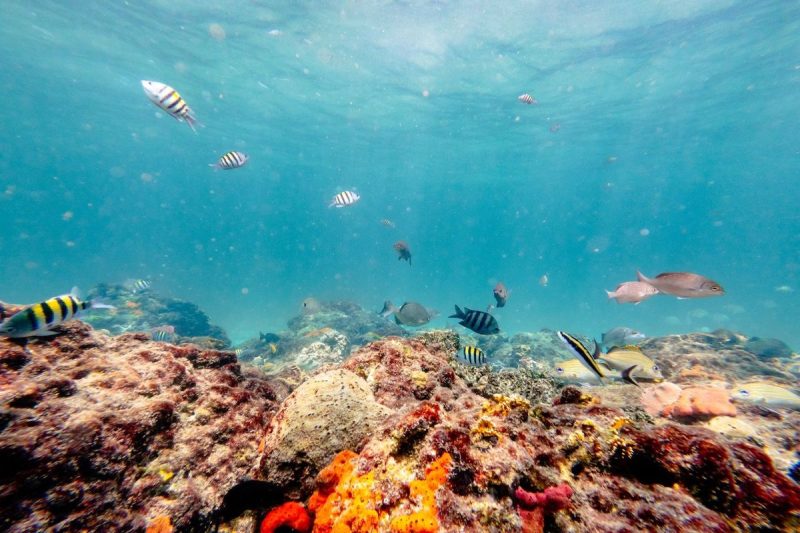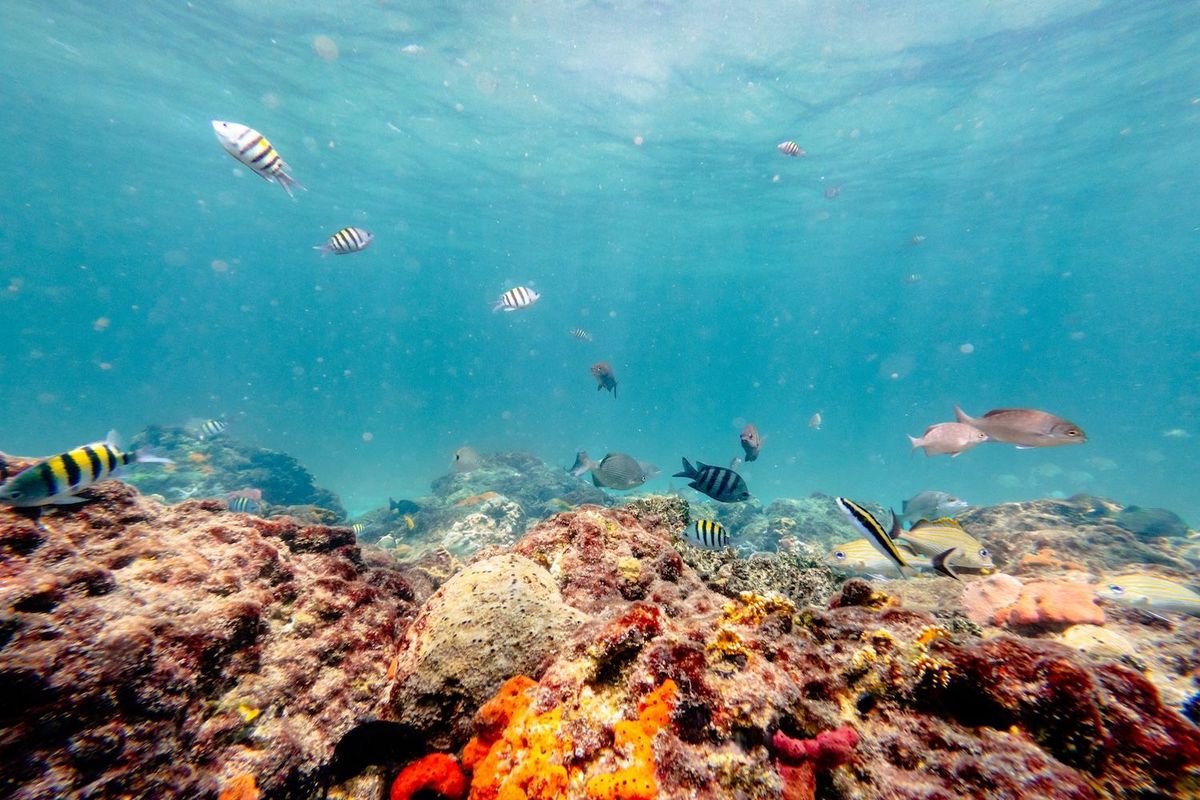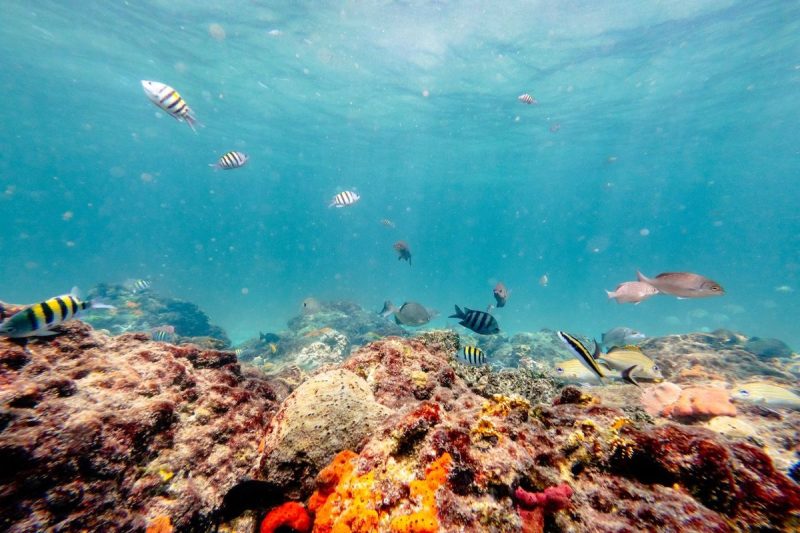

The world’s oceans are increasingly becoming an important new frontier in the geopolitical and economic race for critical minerals, with countries fast-tracking plans for deep-sea mining.
Meanwhile, the global body tasked with regulating such activities is struggling to keep pace.
As sovereign states ramp up efforts to access seabed resources crucial for clean energy and defense technologies, the International Seabed Authority (ISA) finds itself sidelined — raising alarms among environmentalists and nations alike.
Stoking these tensions, US President Donald Trump signed an executive order earlier this month with the aim of expediting deep-sea mineral extraction in both national and international waters.
The directive, which calls for faster permitting and exploration, bypasses multilateral negotiations at the ISA and uses a 1980 domestic statute — the Deep Seabed Hard Mineral Resources Act — to justify the unilateral action.
The order “establishes the US as a global leader in seabed mineral exploration and development both within and beyond national jurisdiction,’ signaling Washington’s intent to secure independence from Chinese mineral supply chains.
But the move has drawn fierce criticism from multiple fronts.
“The US authorization … violates international law and harms the overall interests of the international community,” said Chinese foreign ministry spokesman Guo Jiakun. Such sentiments echo concerns that unilateral actions could unravel decades of work toward collective seabed governance under the United Nations (UN) Convention on the Law of the Sea.
At the heart of the dispute lies the ISA, the UN agency responsible for regulating mining in international waters.
Though it has issued over 30 exploratory permits, it has yet to finalize rules for commercial extraction. That regulatory vacuum has encouraged countries to approach the issue alone and in accordance with their own different agendas.
Norway reverses course on deep-sea mining
In January 2024, Norway became the first country to approve commercial-scale deep-sea mining within its own exclusive economic zone, greenlighting exploration across 280,000 square kilometers — an area larger than the UK.
The move, passed through parliament despite strong domestic and international opposition, is part of the country’s bid to secure metals like cobalt, scandium and lithium for green technologies.
“We will have a relatively long period of exploration and mapping activity to close the knowledge gap on the environmental impact,” Walter Sognnes, co-founder of Loke Marine Minerals, a Norwegian company focused on deep-sea exploration, told the BBC in an interview at the time the news was announced
However, environmentalists argued that the plan undermined Norway’s own standards.
“The Norwegian government always highlighted that they want to implement the highest environmental standards,” said Martin Webeler of the Environmental Justice Foundation.
“That is hypocritical whilst you are throwing away all the scientific advice.”
The Norway Institute of Marine Research also criticized the government’s decision, saying the existing environmental impact assessment was based on limited data and not representative of the vast areas opened for mining. It called for an additional five to 10 years of research before proceeding.
Against that backdrop, Norway reversed course, suspending its deep-sea mining plans at the end of 2024 following mounting political and environmental pressure.
The first licensing round, originally set for 2025, was blocked after the Socialist Left Party threatened to withhold support for the government’s budget unless the initiative was halted.
India eyes Clarion-Clipperton zone, Pacific Islands at crossroads
For its part, India has announced plans to ramp up its presence in the Pacific’s Clarion-Clipperton zone, one of the world’s most mineral-rich deep-sea regions. Although the ISA has already granted India two exploration contracts, the country has opted to hold off on operations as regulations remain in flux.
M. Ravichandran, secretary of the country’s Ministry of Earth Sciences, said the country is seeking to apply to the UN-backed ISA next year to focus on exploring the zone.
Meanwhile, the resource-rich Pacific Islands are emerging as battlegrounds in this high-stakes race.
Kiribati, a small island nation with jurisdiction over 75,000 square kilometers of prospective seabed, is reportedly in talks with China after a previous deal with Canada’s The Metals Company (NASDAQ:TMC) collapsed late last year.
In a statement dated March 17, the Kiribati government called discussions with Chinese ambassador Zhou Limin “an exciting opportunity” to explore its deep-sea resources.
But critics say such moves by smaller nations are often driven by economic desperation and can lead to exploitative outcomes. This tension is familiar in Papua New Guinea, where the failure of the Nautilus Minerals project left environmental damage and financial losses in its wake.
Some Pacific nations are now calling for a global moratorium on seabed mining, citing concerns about the unknown risks to ecosystems and the climate.
Patchwork governance, fragmented oversight
The race toward seabed mining is exposing a critical flaw in global governance: fragmentation. The ISA, which was supposed to provide a unified framework, is losing relevance as more countries chart independent courses.
“The harm caused by deep-sea mining isn’t restricted to the ocean floor: it will impact the entire water column, top to bottom,” Jeff Watters, vice president for external affairs at the Ocean Conservancy, told the Guardian.
A study by the Natural History Museum and the UK’s National Oceanography Center analyzing a 1970s test site concludes that some sediment dwellers were able to recover, but larger animals dependent on polymetallic nodules did not return — likely because the nodules, which take millions of years to form, were destroyed.
Despite these warnings, the Metals Company continues to push forward. It has said it plans to mine by the year’s end, pending US government approval, as CEO Gerard Barron remains unfazed by the backlash.
“Here there’s zero flora,” Barron told the BBC in a January 2024 interview. “If we measure the amount of fauna… in the form of biomass, there is around 10g per square metre. That compares with more than 30kg of biomass where the world is pushing more nickel extraction, which is our equatorial rainforests.”
Beyond environmental concerns, the deep-sea mining surge is reshaping geopolitical dynamics. China, which dominates global production and processing of rare earths, has long used its position as leverage in trade disputes. In response to US tariffs, Beijing recently introduced new export controls on rare earths — further intensifying the mineral arms race.
Trump’s executive order makes clear that seabed mining is now viewed as a national security imperative.
“It’s not just drill, baby, drill. It’s mine, baby, mine,” said Secretary of the Interior Doug Burgum at a recent conference. “We will literally be at the mercy of others that are controlling our supply chains,” he warned.
But this approach risks setting a dangerous precedent. If powerful nations begin issuing their own licenses outside multilateral systems, others are likely to follow suit. The result could be a patchwork of conflicting claims and reduced protections, particularly for vulnerable maritime nations.
With the ISA still developing a mining code and more countries rejecting its pace, the world faces a dilemma: how to balance the urgent demand for critical minerals with the equally pressing need to preserve fragile marine ecosystems.
Securities Disclosure: I, Giann Liguid, hold no direct investment interest in any company mentioned in this article.

